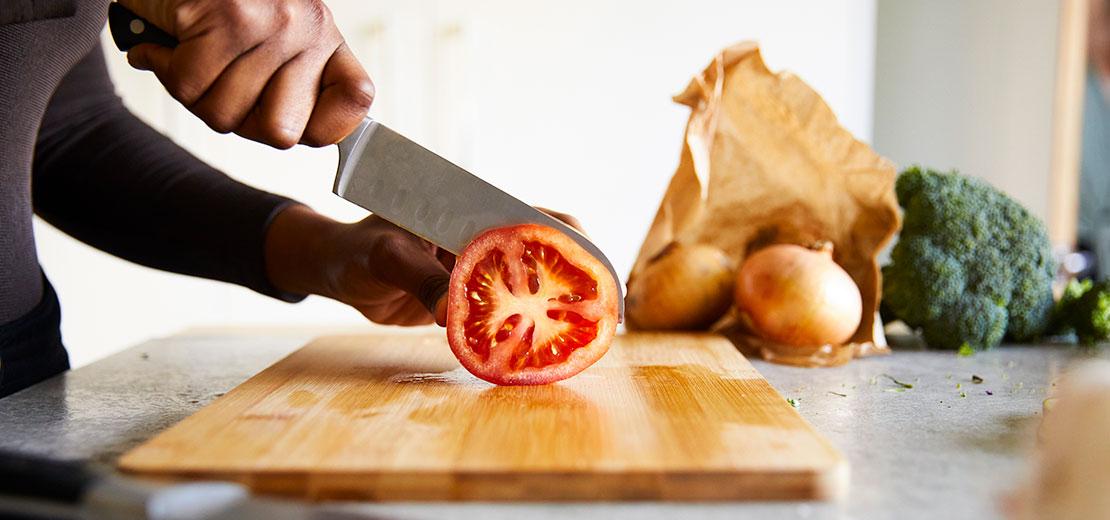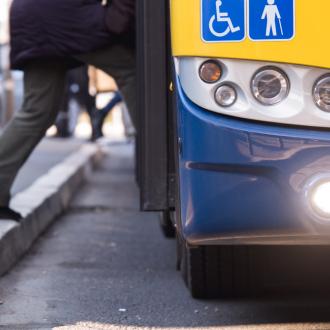Eating Greener
Your Guides

Food planning tips to reduce waste and save money
Planning and shopping smarter can help you to reduce the amount of food you waste.

Eating healthy and sustainable food
Producing food is big business. To grow, make, transport, store and cook our food is an energy intensive process, and unsurprisingly, one which generates greenhouse gas emissions that contribute to climate change.

Recycling food waste
The best thing we can do is not waste food at all. When we waste food, we also waste the energy and resources that went into producing, transporting, storing and cooking it.
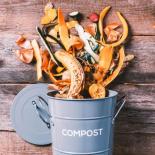
How to compost at home
If your local authority doesn’t offer a food waste recycling service, you can recycle your food waste in a composting bin or a compost heap

Starting a conversation about reducing food waste
By starting just one conversation with your friends, family or colleagues, you can create a ripple effect of positive actions that could help the planet and ourselves feel good.
Why Eating Greener Matters
Did you ever scrape a plate of pasta into the bin without feeling even slightly guilty? Or throw away an unused bag of salad leaves? Most of us probably have. After all, it’s food, it’s ‘bio-degradable’, right? What harm can it do? Well, it turns out, quite a lot.
Around a third of the food we produce is wasted worldwide each year – that’s 1.3 billion tonnes of food that’s never eaten and thrown away. Greenhouse gas emissions from the energy and resources that go into the production, processing, transportation and cooking of food are all wasted. And any unwanted or uneaten food taken to landfill, instead of being recycled, releases the destructive greenhouse gas methane into the air – a gas that’s much more harmful to the planet than carbon dioxide.
A report from the Carbon Trust found that if more people in Scotland adhered to existing dietary guidelines, known as the EatWell Guide, it would result in health benefits and reduced greenhouse gas emissions.
1.3
Billion tonnes of food produced and wasted each year
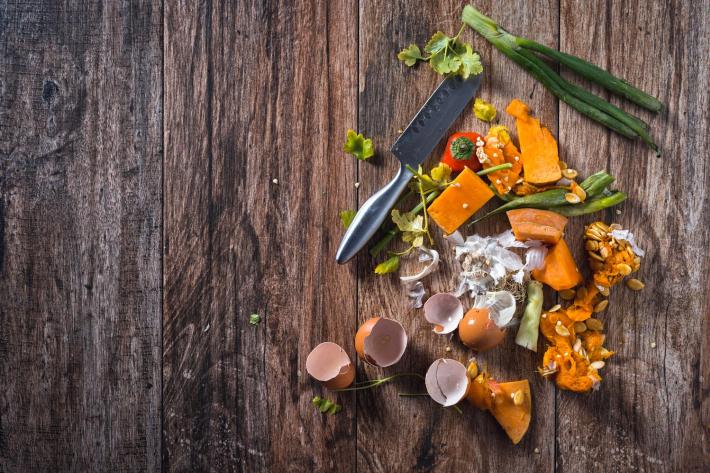
All of this means that food, in all its stages, contributes significantly to climate change – it’s currently estimated to account for 31% of greenhouse gas emissions worldwide. Food waste alone generates about 8% of the world’s greenhouse gas emissions. In fact, if food waste were a country, it would be the world’s third-largest greenhouse gas emitter.
Not all of these emissions can be tackled in Scotland, but we can all play our part to reduce them by minimising the environmental impact of our food choices. In Scotland we send over a million tonnes of biodegradable waste to landfill each year. Two thirds of food waste in Scotland comes from households. It’s clear that we can do things differently. For example, if we stopped all avoidable household food waste, the environmental impact would be the equivalent of taking almost one in five cars off Scotland’s roads.
By all playing our part when it comes to making sustainable food choices, as well as preventing and recycling food waste, we can help Scotland reach its net zero emissions target and stop contributing to climate change.
8%
World's greenhouse gas emissions generated by food waste
What Scotland is doing
In Scotland, we’re making great progress to reduce our waste emissions. Recycling is more a part of our everyday life and over 60% of Scotland’s waste is now recycled. So far, Scotland has invested close to £30 million in food waste prevention, management and reuse and the amount of waste going to landfill in Scotland is now at its lowest level since records began.
But this doesn’t mean the problem is solved. We’ve still got a big challenge to meet our target of net zero by 2045. Net zero is when the amount of greenhouse gas emissions we put into the atmosphere and the amount we’re able to take out adds up to zero. To get there, we’ll need to take action as government, businesses and individuals.
The Scottish Government has therefore set an ambitious target to reduce food waste in Scotland by one third by 2025. Our Food Waste Reduction Action Plan sets out the measures that’ll help get us there by reducing the amount of food waste going to landfill. We’ve also got targets to recycle 70% of remaining waste and send no more than 5% of remaining waste to landfill by 2025.

To meet these challenging targets we support the voluntary action food retail sites are taking to redistribute the food they don’t sell. We have regulations in place to make sure that all food businesses in non-rural areas generating over 5kg of food waste, recycle it. In Scotland, we also treat over 342,000 tonnes of food waste, that allows it to be turned into green energy that powers Scotland’s homes.
We’re continuing to support people by communicating about how to make sustainable choices around food and food waste, and we’re helping more people than ever recycle their food waste - 80% of households in Scotland now have access to a food waste collection service. We’re also investing £70 million to improve local recycling collection infrastructure so it’s easier for householders to recycle as much as possible.
The Scottish Government is also committed to Scotland becoming a Good Food Nation, where people have access to healthy local foods, our food industry is sustainable and we’re lessening the environmental impact of the food we eat. By all working together to be as sustainable as possible with our food, we’ll tackle climate change and reach Scotland’s net zero emissions target together.
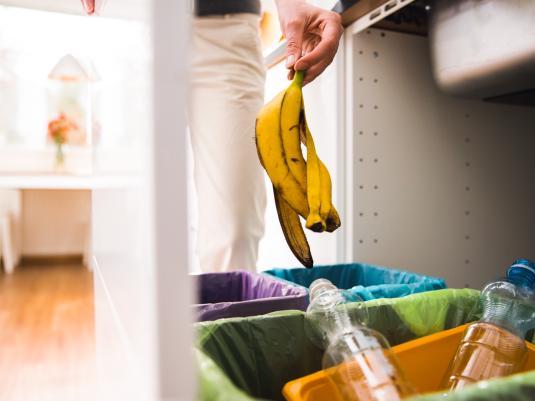
Read more about Scotland’s Food Waste Reduction Action Plan on the Zero Waste Scotland Website.
Resources and Links
Food waste – Zero Waste Scotland
Find out more about reducing food waste
Love Food, Hate Waste
For recipe inspiration and more ideas to prevent food waste
Seasonality calendar – Visit Scotland
Inspiration for seasonal fruit and veg
Scotland brings so much to the table: On the Table – Scotland Food & Drink
Learn more about Scotland’s food and drink
Food Standards Scotland
Discover all you need to know about food safety
Food and drink – NatureScot
Take Action Starting Now
To achieve net zero by 2045, we must take action now. Start here to find ways that you can make changes in your life at home and on the go.
